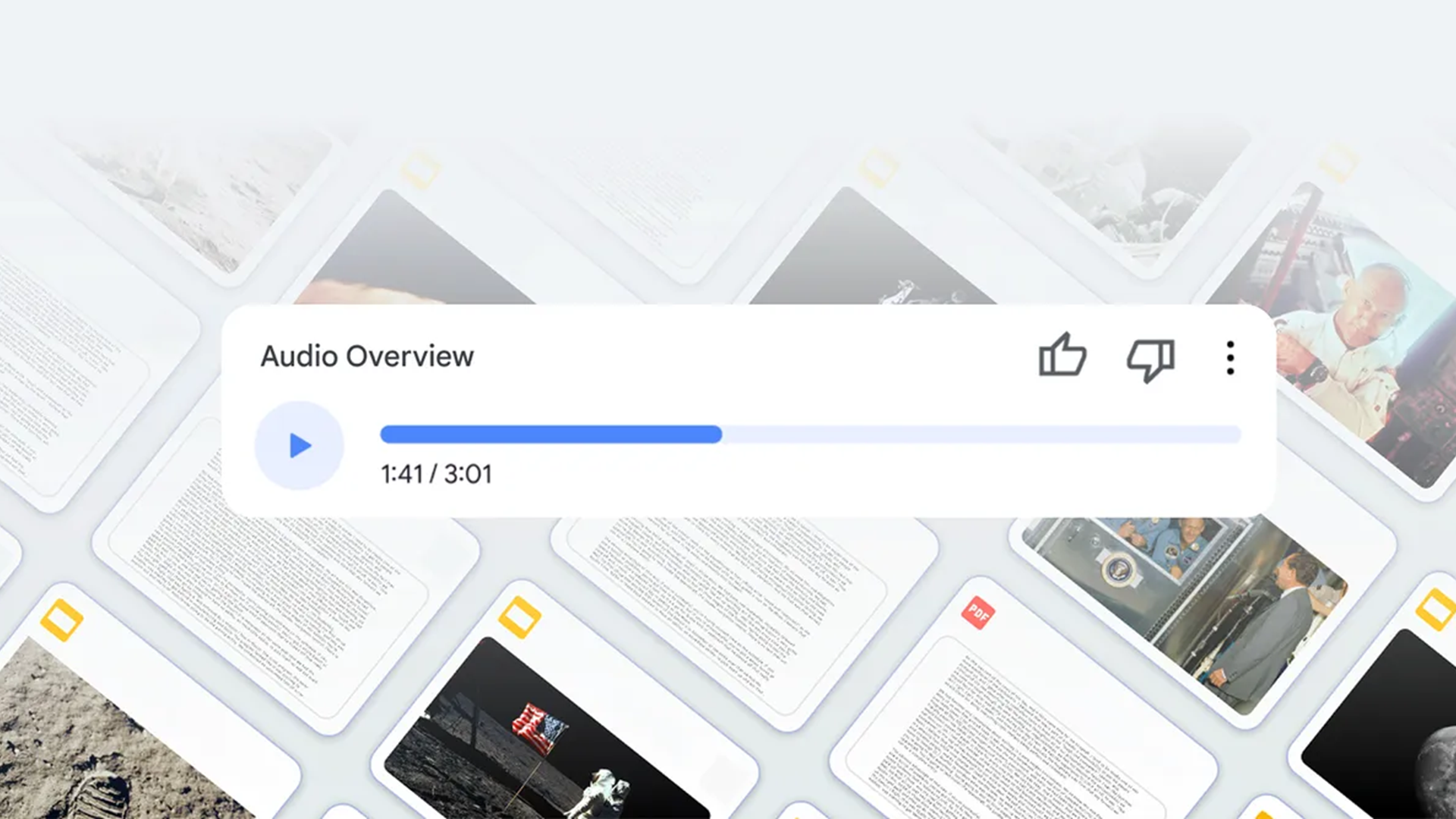One of my favorite AI tools is getting an iPhone app, and here's why you should install it
NotebookLM is going mobile

Google surprised me when I first experimented with its NotebookLM AI tool. The AI-powered research assistant offers a relatively intuitive and focused setup to make custom guides on any topic you can name. It's now poised to become even more accessible with a mobile app soon.
The app should be exciting for anyone who works with large volumes of information or just has an idiosyncratic learning style. NotebookLM basically takes any text, including Google Docs, PDFs, and even YouTube videos that have a transcript, unifies it, and recontextualizes the result as a summary, study guide, or other presentation.
As good as NotebookLM's summarization and ability to synthesize notes are, its most memorable aspect is the Audio Overviews it can create. Audio Overviews basically turns all that information you uploaded into a podcast hosted by two AI characters. The synthetic conversation between the two AI hosts can actually sound like people who have read what you uploaded and want to discuss it.
At first, I thought it was a gimmick, but it's really just a reformatting of information like any other. If you’ve ever felt like you'd absorb details from books and other text better in a BBC panel discussion, it's a great option.
It's also the most obvious reason to anticipate the NotebookLM mobile app. It’s perfect for multitaskers, commuters, and anyone whose eyes are too tired to stare at another screen. I’ve used it to refresh myself on interview transcripts before writing articles and just as a fun way to explain a confusing topic. When the app hits smartphones, the ability to do this on the go may be huge for anyone who wants to absorb complex information but doesn’t always have the time or focus to read it.
Pocket NotebookLM
Of course, Audio Overview is just one part of what makes NotebookLM worth your attention. Unlike many AI assistants, which often operate in a vacuum or require you to explain everything from scratch, NotebookLM has context from the content you share specifically. Its abilities are many, from basic summaries and the ability to answer questions to creating timelines, brainstorming new ideas built on the information, and instant cross-references.
That's useful on a computer. As a mobile app, there's a lot more opportunity to exploit NotebookLM's tools. Sure, you'll have needed to upload the information, but if it's there, you can instantly pull up that quote you can't quite remember or fact about the person you're about to meet.
Of course, it’s not perfect. NotebookLM is only as smart as the information you give it. If your sources are a mess, it won’t magically fill in the blanks. It also can't replace real research. Sometimes, it misses nuance or answers too confidently when the source it pulls from is hedging. But the fact that it’s transparent about the answers helps compensate. And, at least it will always offer something to listen to on your next long commute.
You might also like
Get daily insight, inspiration and deals in your inbox
Sign up for breaking news, reviews, opinion, top tech deals, and more.

Eric Hal Schwartz is a freelance writer for TechRadar with more than 15 years of experience covering the intersection of the world and technology. For the last five years, he served as head writer for Voicebot.ai and was on the leading edge of reporting on generative AI and large language models. He's since become an expert on the products of generative AI models, such as OpenAI’s ChatGPT, Anthropic’s Claude, Google Gemini, and every other synthetic media tool. His experience runs the gamut of media, including print, digital, broadcast, and live events. Now, he's continuing to tell the stories people want and need to hear about the rapidly evolving AI space and its impact on their lives. Eric is based in New York City.
You must confirm your public display name before commenting
Please logout and then login again, you will then be prompted to enter your display name.